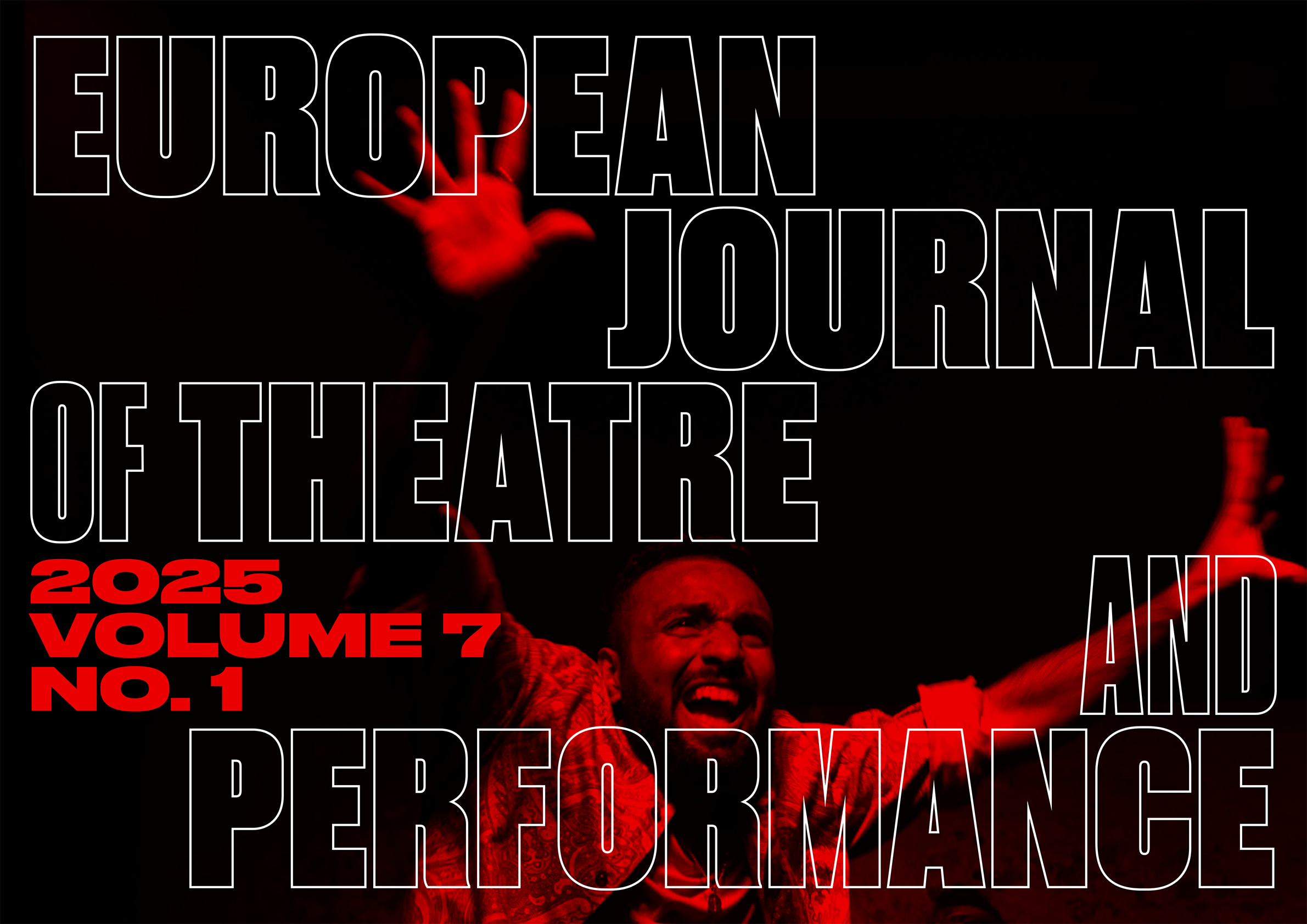Migratory Haunting and Ghostly Mobility: On The Voice of Fingers, by Thomas Bellinck and Said Reza Adib
DOI:
https://doi.org/10.21827/ejtp.7.1.42832Keywords:
Thomas Bellinck, borders, hauntology, migration, European UnionAbstract
The Voice of Fingers (2023) is a performance directed by Thomas Bellinck in collaboration with Said Reza Adib that critically engages with the colonial origins of fingerprinting and its ongoing use in European border policies. I will analyse the performance using a theoretical framework around the notion of migratory haunting developed by Professor Nermin Saybaşılı and other hauntology scholars, along with my observations as a directing intern during the production’s creation. This framework positions migrants as ghost citizens who disrupt traditional notions of borders and belonging. By analysing key scenes, this article illuminates the spectral traces of the systematisation of fingerprinting by British scientist Sir Francis Galton, and how these historical practices continue to shape the lived experiences of migrants and refugees navigating the EU’s border regimes.
Published
Issue
Section
Copyright (c) 2025 Furkan Ak

This work is licensed under a Creative Commons Attribution 4.0 International License.

